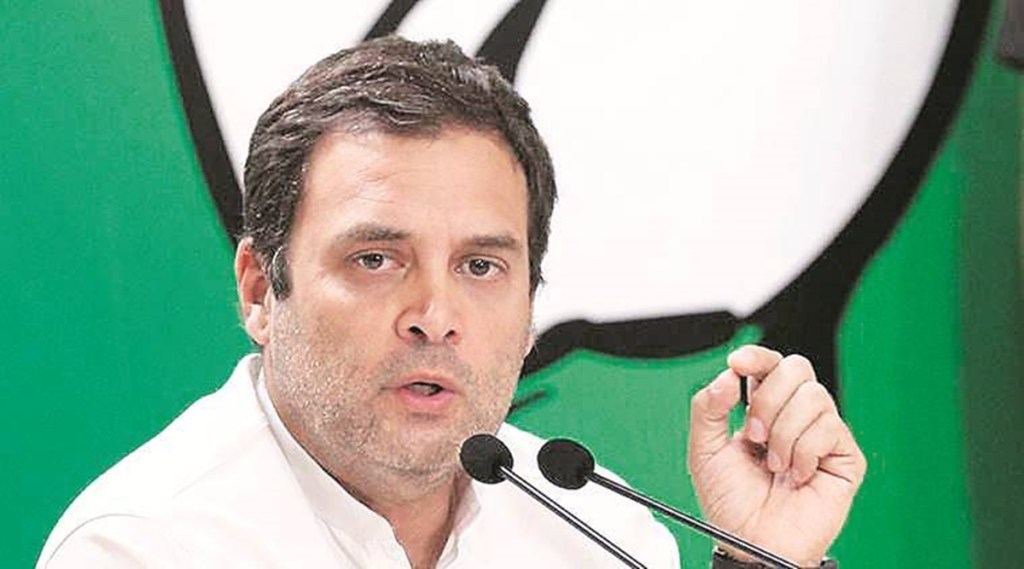As I listened to Rahul Gandhi’s speech in Parliament last week, I found myself understanding anew why Narendra Modi has won two terms in office. And understanding anew why I was once such a supporter of Modi that I continue to be charged daily by someone or other on Twitter of being a ‘fascist enabler’. Before going any further, let me make clear that I believe Modi has done some things that are truly admirable. Swachh Bharat and his government’s programme that aims to provide drinking water to every Indian home are on top of my list.
In my view it was the efficiency that he brought to rural welfare programmes in general that won him a second term. Since then though there has been too much Hindutva, too many hate speeches, too much religiosity and too much disdain for dissident opinions, for me to continue being a ‘bhakt’. At heart I am a liberal and a proud member of the Khan Market gang and cannot abide people whose politics is based on spreading hatred between communities or castes. So, I am not only no longer a ‘bhakt’ but a critic and a dissident.
There is a great deal that is dangerous and dishonest about Modi’s Bharatiya Janata Party. But, to listen to Rahul Gandhi’s long and rambling speech in the Lok Sabha was to realise that if he remains the only challenger that the Congress party produces, Modi will continue to look much, much better. A recent India Today poll found that when it came to choosing a Prime Minister, the people polled put Modi at the top and Rahul at a really low number two.
The Dynasty’s crown prince has learned nothing from two humiliating defeats in general elections and seven years of being in the Opposition. The most important thing that he has not learned is that it is not his birthright to rule India, and the sooner he sheds his air of entitlement, the better it will be for him. He charged Modi with behaving like an Emperor, instead of like a democratically elected leader, but seems to have forgotten that his grandma once allowed the President of the Congress party to announce that ‘India is Indira and Indira is India’. More recently I happened to be present in the audience when his mother declared grandly, just months before the last general election, that Modi would not be coming back. ‘We will not allow him to.’
He seems to have forgotten that when his mother was India’s de facto prime minister, she was so powerful that she could order the man who was technically India’s Prime Minister to send top secret government files to her residence for inspection. So powerful that her kitchen cabinet made policies that the Government of India was ordered to implement. So powerful that she could include her son-in-law in a list of VVIP officials who did not need to be frisked or metal-detected at airports. It was power without accountability on a sickening scale, and it became one of the reasons for the rise and rise of Modi. And, even when it was clear to most Indians that Modi would become Prime Minister, it was still possible for one of Sonia Gandhi’s courtiers to publicly proclaim that the only job Modi was fit for was to make tea in the Congress party’s office.
Rahul Gandhi made serious mistakes when analysing foreign policy in his speech, but that bothered me less than his saying that under Modi, India has been divided into two countries. One India is inhabited by the rich and the other India that is inhabited by the poor. His political homework is so deficient that he seems not to know that this division has existed for the 75 years that India has been an independent nation. The divisions in Nehruvian socialist times were so pronounced that those who inhabited the India in which the ruling class lives could not have cared less that in the other India there were people who did not have access to such basic things as clean water. In that exalted India inhabited by high officials and mighty political leaders was where policies were made. The disdain for the other half was so obvious that they could not have cared less about the abysmal quality of the public goods these policies created. They did not need to because their own children went to private schools, and nobody needed to use the medical services provided in filthy government hospitals.
If Modi has not been able to make much difference to the dreadful socialist legacy that he inherited, he cannot be blamed for not trying. The Budget that was presented in Parliament the day before Rahul Gandhi made his speech was defined by the emphasis it placed on building infrastructure and creating an India in which every Indian home will have clean, running water, a toilet built with government assistance and subsidised cooking gas. Modi may not succeed in achieving all these things but there is no question that he is trying to give ordinary Indians a chance to have something resembling a standard of living.
So, before Rahul makes his next speech in the Lok Sabha, he would do well to do some homework and take some elementary history lessons. If he does, he may discover why Modi remains popular despite his many failings.

